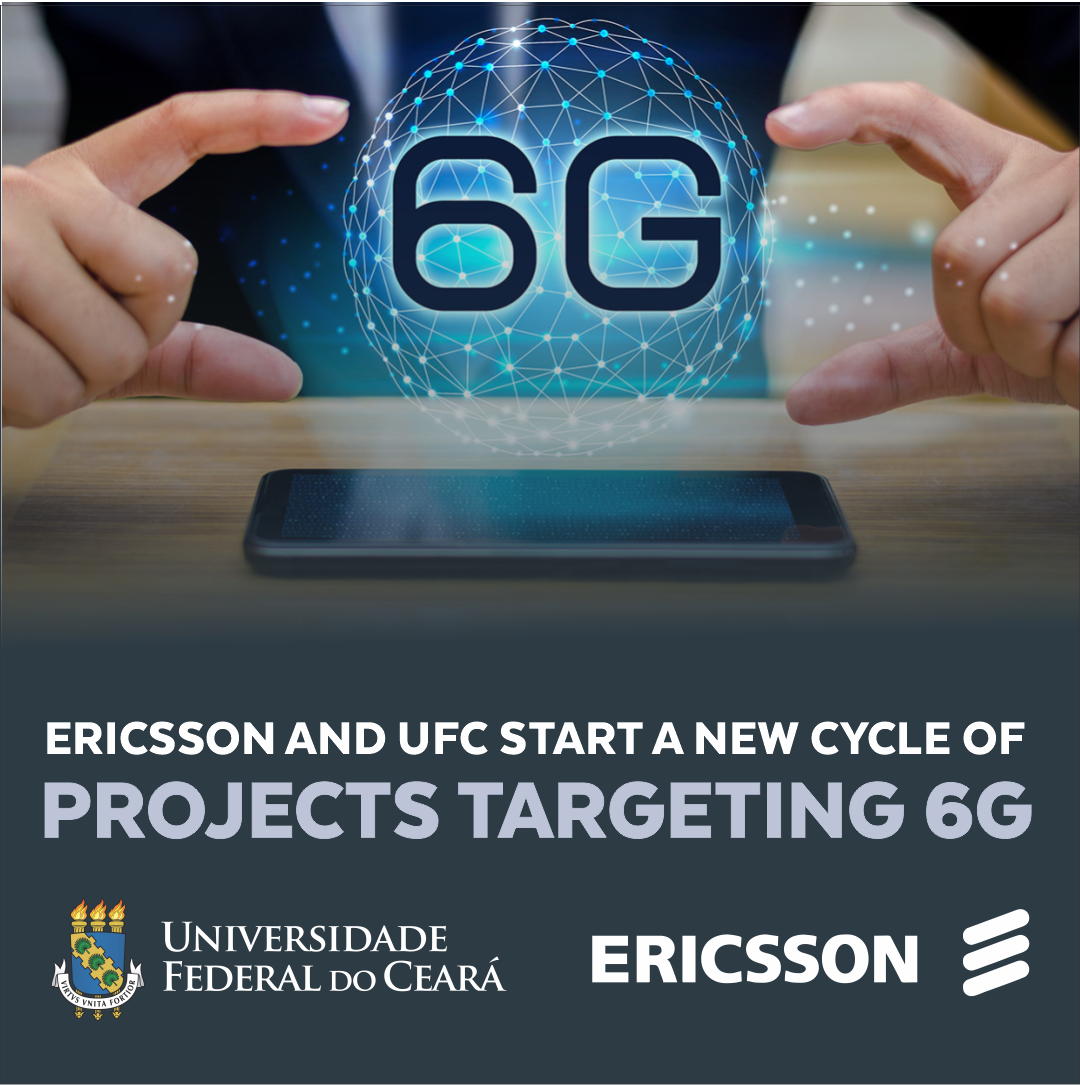
Ericsson and the Federal University of Ceará (Brazil) are starting a new cycle of research projects in telecommunications that aim to study 6G technology, which will replace the current 5G by the end of this decade. The projects will be carried out by researchers from GTEL – Wireless Telecommunications Research Group with technical supervision from Ericsson’s Research centers in Brazil and Sweden.
It is expected that 6G will present capacity and performance significantly superior to 5G, enabling new services such as interactive holographic telepresence, internet of the senses, and space-time remote control of objects.
The new projects have, as their initial focus, the use of the antenna infrastructure to carry out control and sensing tasks. The increasing density of antennas per unit area will allow not only high-bandwidth communication but also the control and tracking of objects with a high degree of precision. One potential use case is the remote management of fleets of unmanned land and aerial vehicles.
Another focus of the studies is to propose and evaluate new topologies for the radio access network including, for example, mobile base stations, both on land and in the air. Other possible topology enhancements include adding network-controlled repeaters, backhaul-integrated radio access, and reconfigurable intelligent surfaces.
Ericsson’s partnership with the GTEL/UFC has existed for over 20 years and has generated hundreds of publications, patents and provided world-class training to generations of engineers and researchers.
Edvaldo Santos
Maria Valéria Marquezini, PhD
Mateus Santos
Icaro Da Silva
Göran Klang
Sven-Olof Jonsson
Mats Nordberg
Björn Johannisson
#technology #research #university #5g #6g #ericsson #engineers #telecommunications #projects
